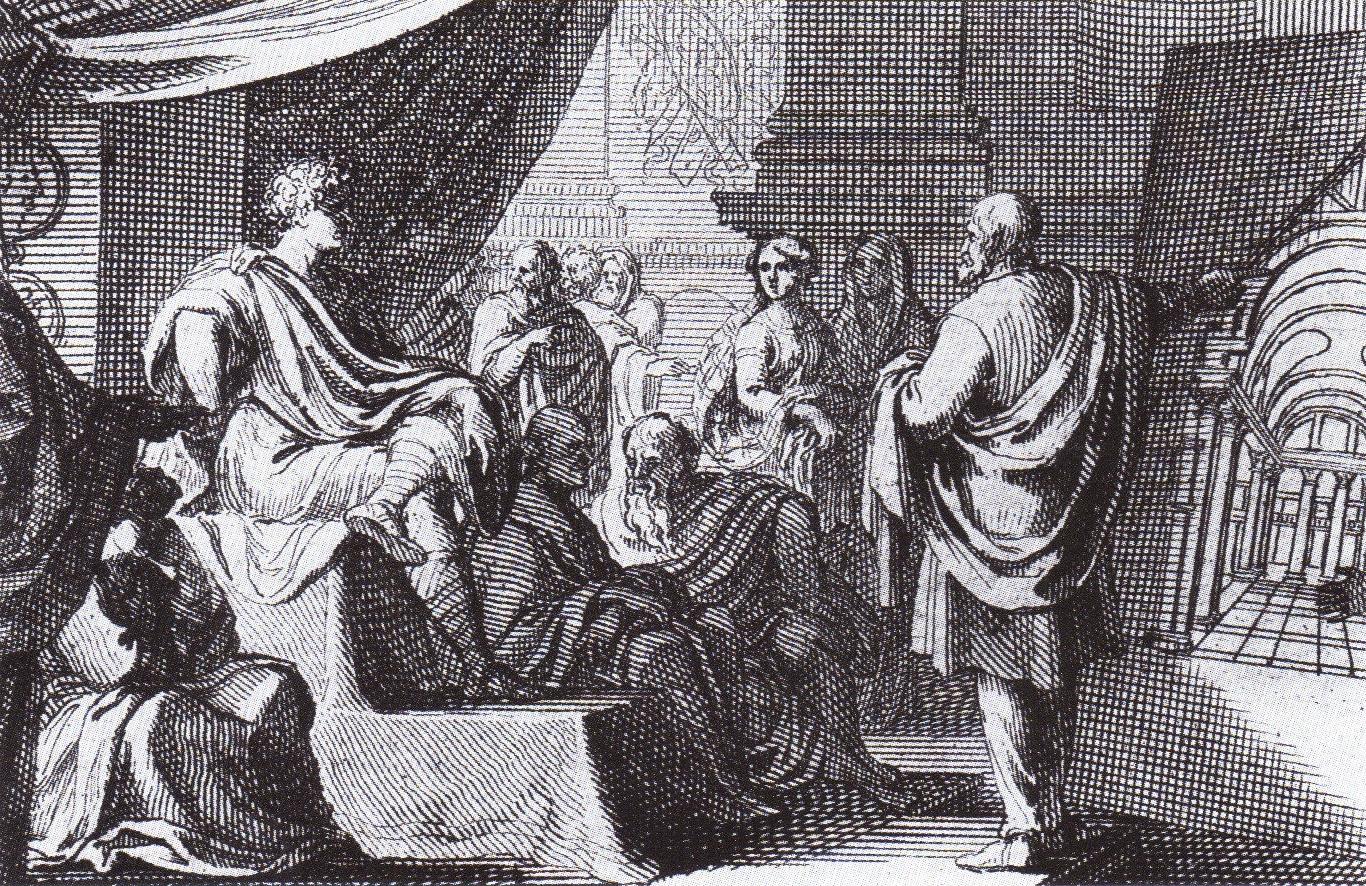Zdroj: De architectura (The Ten Books On Architecture) (~ 15BC), Book II, Chapter VIII, Sec. 8
Marcus Vitruvius Pollio: Citáty v angličtine
Zdroj: De architectura (The Ten Books On Architecture) (~ 15BC), Book X, Chapter XVI, Sec. 12
Introduction, Sec. 2
De architectura (The Ten Books On Architecture) (~ 15BC), Book II
Zdroj: De architectura (The Ten Books On Architecture) (~ 15BC), Book II, Chapter VI, Sec. 2-3
“Architecture depends on Order, Arrangement, Eurythmy, Symmetry, Propriety, and Economy.”
Zdroj: De architectura (The Ten Books On Architecture) (~ 15BC), Book I, Chapter II "The Fundamental Principles of Architecture" Sec. 1
Zdroj: De architectura (The Ten Books On Architecture) (~ 15BC), Book II, Chapter IV, Sec. 3
Zdroj: De architectura (The Ten Books On Architecture) (~ 15BC), Book II, Chapter II, Sec. 2
Zdroj: De architectura (The Ten Books On Architecture) (~ 15BC), Book I, Chapter III "The Departments of Architecture" Sec. 1
Introduction, Sec. 17
De architectura (The Ten Books On Architecture) (~ 15BC), Book IX
Zdroj: De architectura (The Ten Books On Architecture) (~ 15BC), Book II, Chapter III, Sec. 4
Zdroj: De architectura (The Ten Books On Architecture) (~ 15BC), Book I, Chapter VI, Sec. 11
Zdroj: De architectura (The Ten Books On Architecture) (~ 15BC), Book I, Chapter I, Sec. 2
Zdroj: De architectura (The Ten Books On Architecture) (~ 15BC), Book II, Chapter VI "Pozzolana" Sec. 1
Zdroj: De architectura (The Ten Books On Architecture) (~ 15BC), Book I, Chapter IV "The Site of a City" Sec. 1
“In fact, all kinds of men, and not merely architects, can recognize a good piece of work…”
Zdroj: De architectura (The Ten Books On Architecture) (~ 15BC), Book VI, Chapter VIII, Sec. 10
Zdroj: De architectura (The Ten Books On Architecture) (~ 15BC), Book I, Chapter I "The Education of the Architect" Sec. 1
Introduction, Sec. 1
De architectura (The Ten Books On Architecture) (~ 15BC), Book VI
Zdroj: De architectura (The Ten Books On Architecture) (~ 15BC), Book X, Chapter I, Sec. 3
Zdroj: De architectura (The Ten Books On Architecture) (~ 15BC), Book VII, Chapter V, Sec. 4
Zdroj: De architectura (The Ten Books On Architecture) (~ 15BC), Book I, Chapter VI, Sec. 10
Zdroj: De architectura (The Ten Books On Architecture) (~ 15BC), Book III, Chapter I, Sec. 1
Zdroj: De architectura (The Ten Books On Architecture) (~ 15BC), Book II, Chapter III, Sec. 4
Zdroj: De architectura (The Ten Books On Architecture) (~ 15BC), Book VIII, Chapter VI, Sec. 11
Zdroj: De architectura (The Ten Books On Architecture) (~ 15BC), Book I, Chapter V, Sec. 2
Zdroj: De architectura (The Ten Books On Architecture) (~ 15BC), Book II, Chapter IX, Sec. 11
Zdroj: De architectura (The Ten Books On Architecture) (~ 15BC), Book I, Chapter I, Sec. 7
Zdroj: De architectura (The Ten Books On Architecture) (~ 15BC), Book IV, Chapter VIII, Sec. 6
Zdroj: De architectura (The Ten Books On Architecture) (~ 15BC), Book II, Chapter VIII "Methods of Building Walls" Sec. 1
Zdroj: De architectura (The Ten Books On Architecture) (~ 15BC), Book I, Chapter IV, Sec. 12
“Cold winds are disagreeable, hot winds enervating, moist winds unhealthy.”
Zdroj: De architectura (The Ten Books On Architecture) (~ 15BC), Book I, Chapter VI "The Directions of the Streets with Remarks on the Winds" Sec. 1
